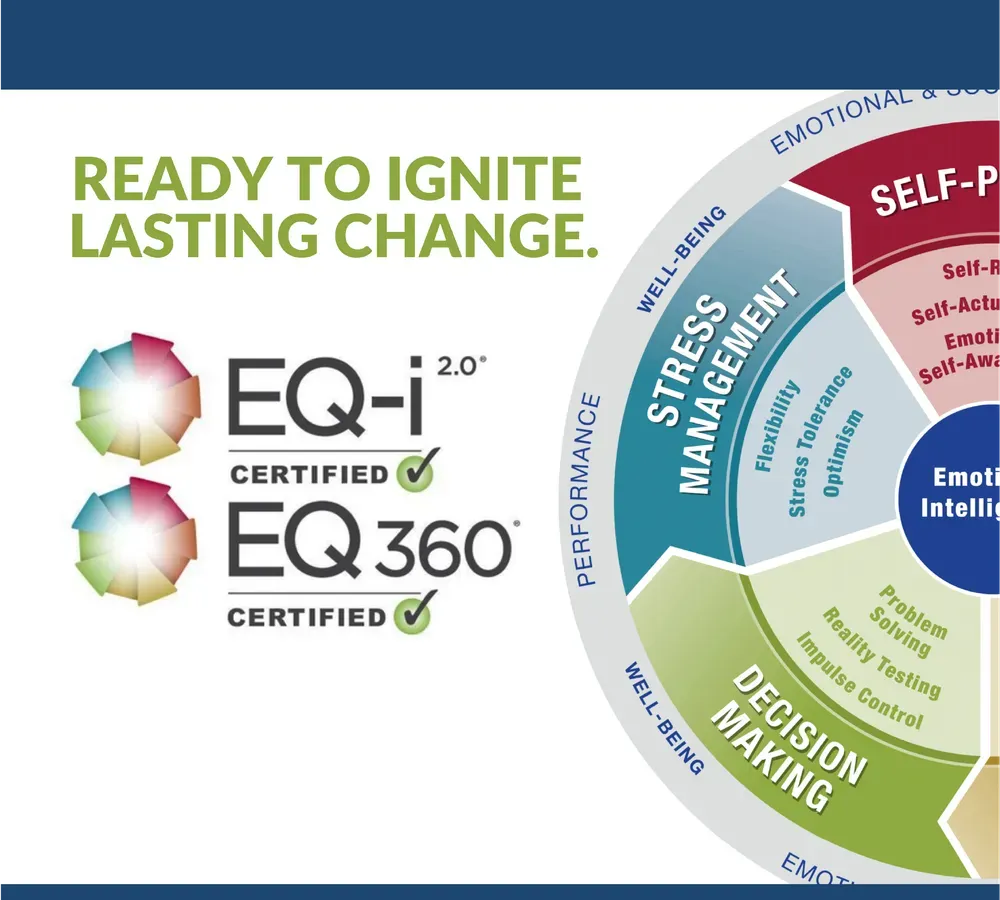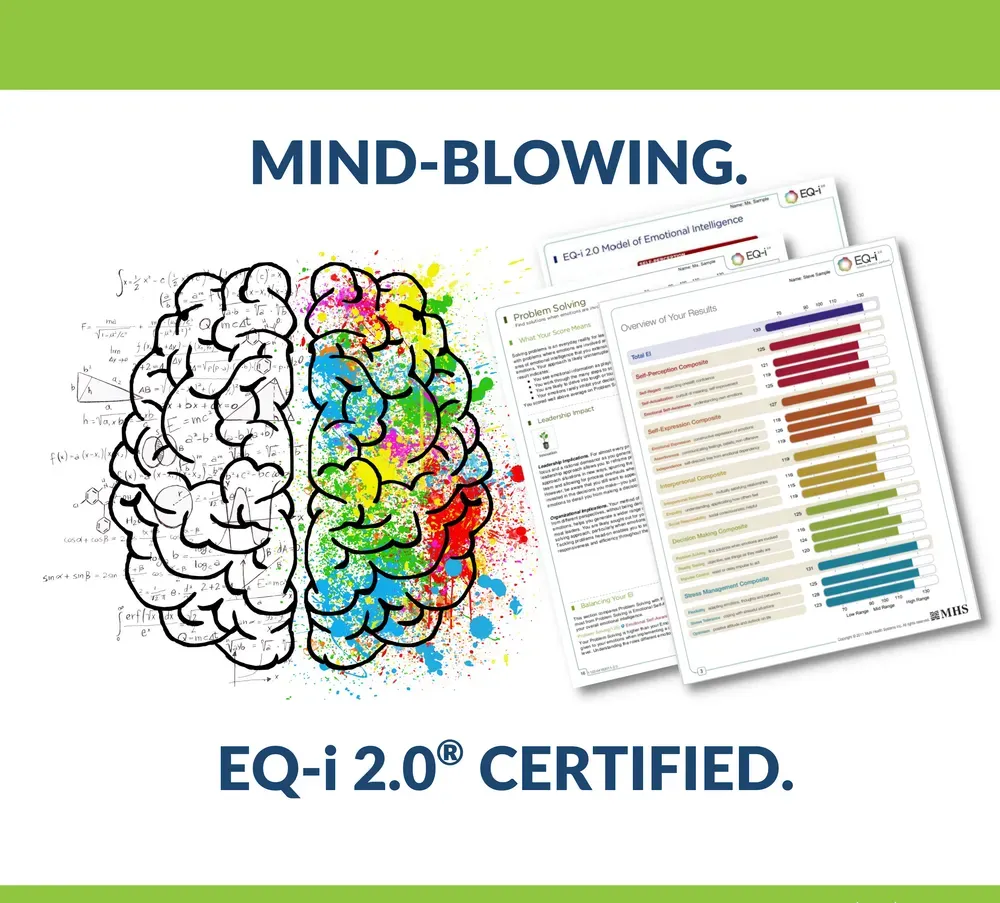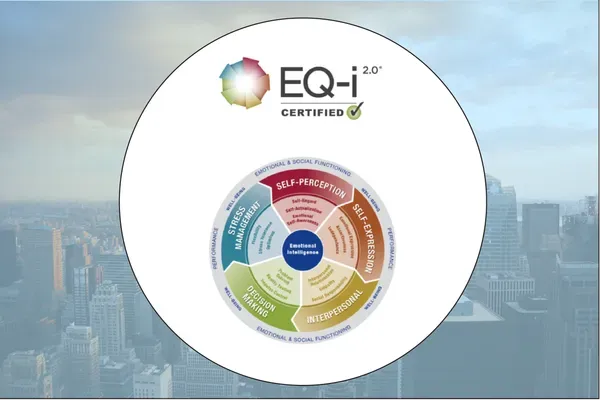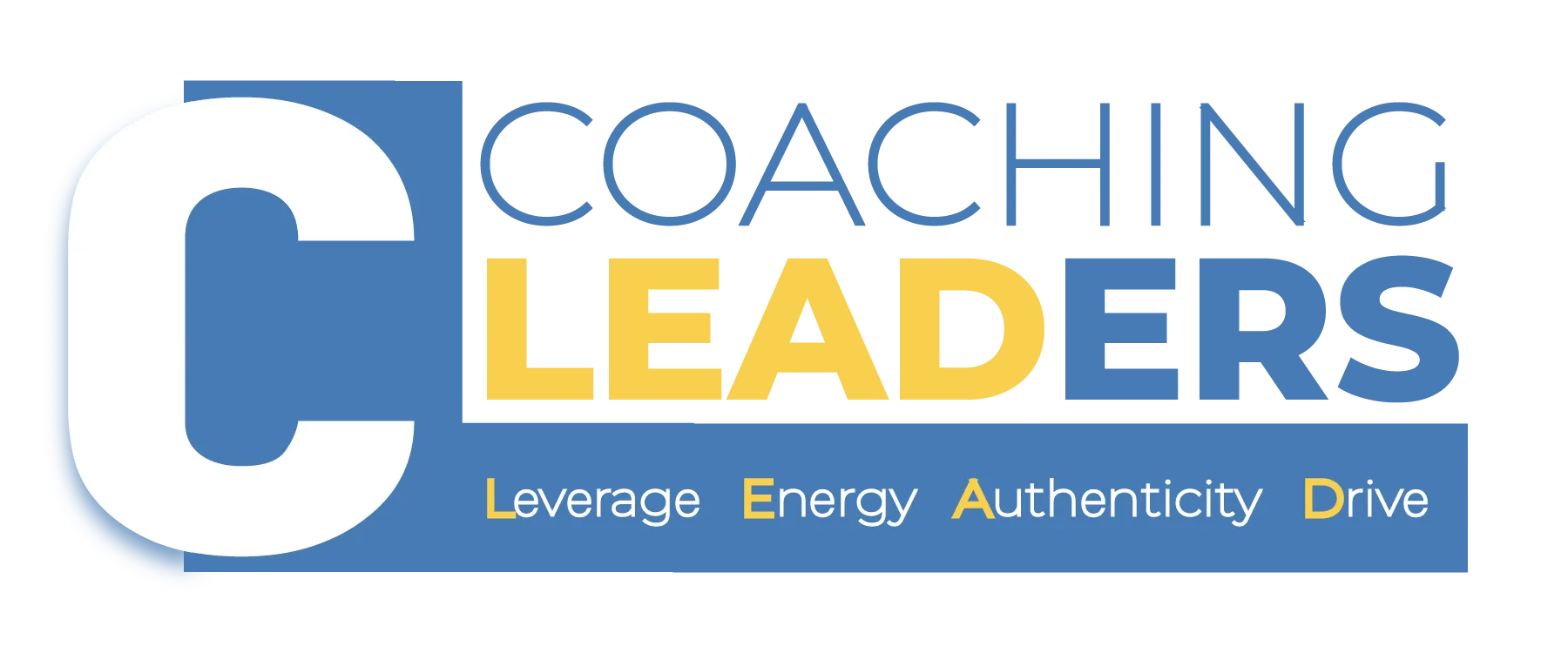RECRUIT TALENT DEVELOP TALENT KEEP TALENT

Fifteen competencies of emotional intelligence grouped into five composites:
-
Self-Perception
-
Self-Expression
-
Interpersonal
-
Decision Making
-
Stress Management
Discover More About Your Emotional Intelligence
Emotional intelligence skills are critical for building relationships and teams, resolving conflict, solving problems, leading effectively and building resilience. The EQ-i 2.0 provides you with a detailed assessment of your areas of strength and potential areas for development. You will receive a comprehensive report describing how your EQ competencies work together for effectiveness. It also provides suggested strategies for bringing your EQ competencies into balance for greater effectiveness.
The EQ-i 2.0 assessment is administered online, using a secure site. You will respond to 133 statements related to emotional intelligence skills, which takes approximately twenty minutes to complete.

The Model of Emotional Intelligence Includes:

Self-Perception
Self-Regard is respecting oneself while understanding and accepting one's strengths and weaknesses. Self-Regard is often associated with feelings of inner strength and self-confidence.
Self-Actualization is the willingness to persistently try to improve oneself and engage in the pursuit of personally relevant and meaningful objectives that lead to a rich and enjoyable life.
Emotional Self-Awareness includes recognizing and understanding one's own emotions while understanding the cause of these emotinos and the impact they have on one's own thoughts and actions and those of others.

Decision Making
Problem Solving is the ability to find solutions to problems in situations where emotions are involved. Problem solving includes the ability to understand how emotions impact decision making.
Reality Testing is the capacity to remain objective by seeing things as they really are. This capacity involves recognizing when emotions or personal bias can cause one to be less objective.
Impulse Control is the ability to resist or delay an impulse, drive or temptation to act and involves avoiding rash behaviors and decision making.

Self-Expression
Emotional Expression is openly expressing one's feelings verbally and non-verbally.
Assertiveness involves communicating feelings, beliefs and thoughts openly, and defending personal rights and values in a socially acceptable, non-offensive, and non-destructive manner.
Independence is the ability to be self directed and free from emotional dependency on others. Decision-making, planning, and daily tasks are completed autonomously.

Interpersonal
Interpersonal Relationships refers to the skill of developing and maintaining mutually satisfying relationships that are characterized by trust and compassion.
Empathy is recognizing, understanding, and appreciating how other people feel. Empathy involves being able to articulate your understanding of another's perspective and behaving in a way that respects others' feelings.
Social Responsibility is willingly contributing to society, to one's social groups, and generally to the welfare of others. Social Responsibility involves acting responsibly, having social consciousness, and showing concern for the greater community.

Stress Management
Flexibility is adapting emotions, thoughts and behaviors to unfamiliar, unpredictable, and dynamic circumstances or ideas.
Stress Tolerance involves coping with stressful or difficult situations and believing that one can manage or influence situations in a positive manner.
Optimism is an indicator of one's positive attitude and outlook on life. It involves remaining hopeful and resilient, despite occasional setbacks.
Grow your leadership skills now!


I built Coaching Leaders because I believe in producing measurable results that help us all grow in leadership. I know continued education is an investment and choosing a program that works is essential. If you want more information about how the Emotional Quotient Index can benefit you and your team, email me at: [email protected]
– bob
The Emotional Quotient Assessment With Measurable Results!


